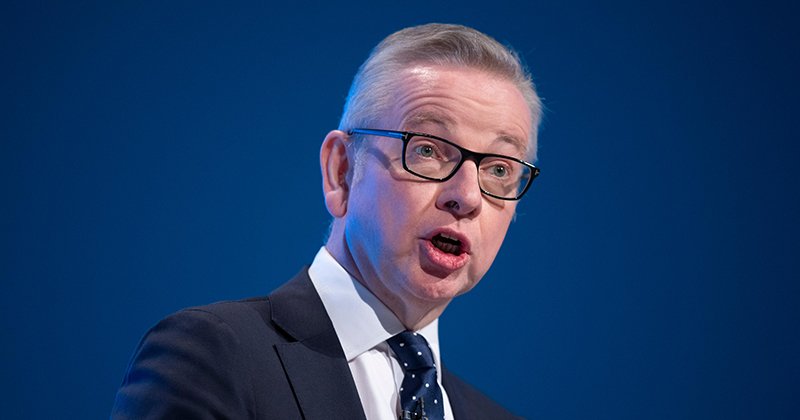Local councils are already opposing government plans to create new “elite” sixth forms in their area – insisting they have enough quality 16-to-18 schools and colleges.
Ministers have also been warned they must not allow the new institutions to become “cuckoos in the nest” which damage local education “ecosystems”.
Fifty-five areas have been identified as having “weak” school outcomes and will now be known as “education investment areas” under the government’s levelling up plans.
These “cold spots” will be prioritised as the location for “specialist” sixth form free schools with a “track record of progress on to leading universities” – such as the highly selective Harris Westminster Sixth Form.
But FE leaders have questioned the evidence for the new institutions – with one college principal saying it is the last thing his area needs.
FE Week analysis shows there are 1,414 existing sixth forms and colleges in the 55 education investment areas already. And 303 of them teach fewer than 200 students – the Department for Education’s benchmark for a financially viable sixth form.
Nottinghamshire has the highest number with 71, while Hartlepool and Knowsley have the least with five.
Some councils in the education investment areas have already voiced concern at the government’s plan.
Kate Groucutt, St Helens Borough Council’s cabinet member for education, skills and business, told FE Week her area’s seven existing sixth forms and colleges instead need “certainty, stability and more funding”, while Luton councillor Aslam Khan said his area already has a “enough and a good breadth of” nine school sixth forms and colleges that “just need to be funded better”.
Cambridgeshire County Council, which has 55 school sixth forms and colleges, also questioned the need for another sixth form as its team completed a review of post-16 providers 18 months ago which “showed there is sufficient provision for our five-year planning period”.
The exact make-up of the proposed new sixth forms isn’t clear as the levelling up secretary Michael Gove’s white paper is light on detail, with no promise of extra cash to fund them.
A DfE trail of the announcement earlier this week labelled them as “elite”, but there is no mention of them being selective in the white paper.
However, ministers last year backed a joint bid by Eton College and Star Academies to sponsor three selective sixth forms in the north and Midlands, which could be an insight into the direction of travel.
Leaders of existing selective sixth forms told FE Week’s sister publication Schools Week their model allowed them to provide a more rigorous academic education to those aiming for top universities, but sounded caution over expansion plans and their potential impact on other communities.
At Newham Collegiate Sixth Form in east London, prospective students need at least eight GCSEs, including EBacc and a grade 7 in English and maths.
The City of London Academies Trust, which sponsors NCS, is also launching a new “collegiate” group of sixth forms, including two more selective institutions, in September.
Trust chief executive Mark Emmerson said a similar “pathway arrangement” in metropolitan areas of the north “might be a really good way of avoiding the elite institutions taking children from the other schools, which is a potential problem”.
But he warned new sixth forms must not be “cuckoos in the nest”, adding that it was “really quite important that that borough-wide knowledge in the local area is brought into the discussion”.
Harris Westminster Academy requires entrants to sit an exam and attend an interview, with pupils previously eligible for free school meals prioritised in admissions.
Principal James Handscombe said because of selection, his teachers could focus on a “smaller breadth and provide for those students that might not be challenged in a group where everything was aimed at the middle”.
But he admitted replicating the model outside London could be a “challenge”.
College leaders were quick to slam the idea of more 16-to-19 providers opening in the area.
Darren Hankey, the principal of Hartlepool College, said: “I think the last thing Hartlepool needs on top of an FE college, a sixth form college, two school sixth forms, a specialist sixth form, and at least five private providers that send buses to the town to collect students is another provider.”
Derek Whitehead, principal of Leeds College of Building, added: “Government does not need to create more institutions. What is needed now is increased support and investment in our colleges so we can continue to expand our provision.”
Analysis by Schools Week shows that 62.5 per cent of constituencies covered by the 55 education investment areas are led by Conservative MPs.
Conservative MP for Mid Derbyshire Pauline Latham welcomed the idea of an additional “elite” sixth form to be added to the 58 school sixth forms and colleges that already exist in Derbyshire.
She told FE Week: “Some pupils in Derby and Derbyshire currently have no choice but to attend the local college, but for some children, the protected environment of a specialist sixth form is more appropriate.
“If they are properly implemented, then I believe elite sixth forms will give high-fliers in Derby and Derbyshire the opportunities to excel.”

















Your thoughts